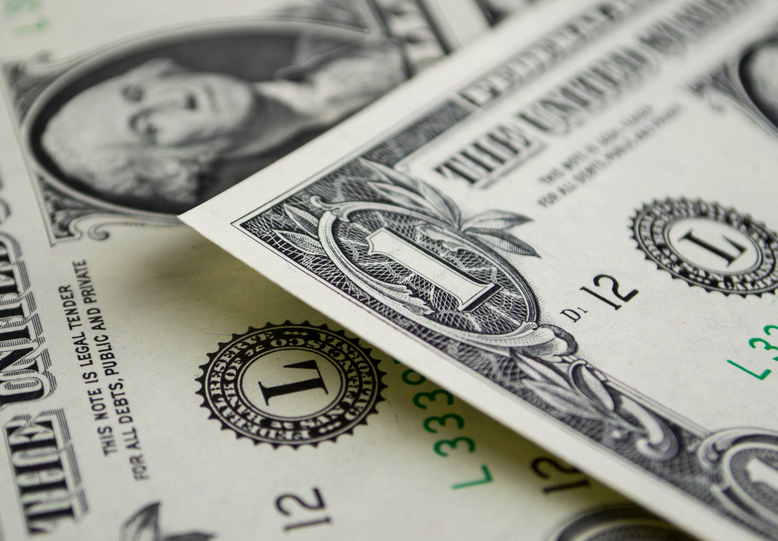
The dollar staged a powerful late-day comeback Thursday after President Donald Trump said the U.S. currency would get “stronger,” appearing to contradict comments made only the day before by his Treasury secretary.
The mixed messages from the administration sent the dollar on a wild ride over the past two trading sessions, first reeling against major currencies like the euro and yen before rebounding on Thursday to finish higher. The dollar’s sudden turnaround also roiled commodities markets, sending oil and metals prices tumbling.
“The dollar is going to get stronger and stronger, and ultimately I want to see a strong dollar,” President Trump said during a CNBC interview at the World Economic Forum in Davos, Switzerland.
Mr. Trump added that he thought remarks by Treasury Secretary Steven Mnuchin, who said on Wednesday at Davos that a “weaker dollar is good for trade,” had been taken out of context by investors who fled the dollar.
Their remarks represented a break from past administrations, which have worried that any comments about the value of the world’s reserve currency risked disrupting global investment flows or influencing interest rate movements.
Stock and bond markets have mostly shrugged off Mr. Trump’s comments on the Russia investigation, threats against North Korea, and his public feuding with members of Congress and his own administration. But the sudden foreign-exchange volatility suggests that the president’s thoughts on the dollar can have a greater impact on financial markets, making U.S. policy harder to predict and raising the prospect of more price swings ahead.

The spate of commentary from top U.S. officials on the dollar’s value “is unusual, in a historical context,” said Christian Lawrence, senior market strategist at Rabobank. “But we know that Trump likes to speak his mind. If he wants to talk about the dollar he will talk about the dollar.”
Mr. Mnuchin’s comments drew criticism from European Central Bank President Mario Draghi on Thursday, as the euro broke $1.25 for the first time in three years.
Mr. Draghi attributed some of the euro’s recent gains to “the use of language that doesn’t reflect the terms of reference that have been agreed,” although he didn’t name Mr. Mnuchin. He warned at a press conference that such language violated longstanding international agreements designed to prevent currency wars.
The currency volatility “represents a source of uncertainty, which requires monitoring with regard to its possible implications for the outlook for price stability,” Mr. Draghi said.
A stronger euro makes the ECB’s task of increasing the rate of inflation harder because cheaper imported goods weigh on prices. Eurozone inflation has remained below the central bank’s target of just under 2% for five years.
Yet some analysts believe the ECB’s options for tamping the euro’s strength against the dollar are limited: The eurozone economy has started 2018 strong, and the ECB is preparing to unwind years of extraordinary monetary stimulus, a move that investors expect to boost the euro.

The dollar may have a harder time weakening against the currencies of some countries in Asia, where monetary authorities are expected to fight the appreciation of their own currencies, some analysts said.
“Historically, many export-dependent Asian economies have actively intervened to keep their currencies weak…and there is evidence that they are doing the same now,” said Brad Setser, a senior fellow at the Council on Foreign Relations and a former top U.S. Treasury official in the Obama administration.
Several large Asian economies, including Korea and Thailand, appear to have already weakened their currencies in the past few weeks, Mr. Setser said. The Bank of Thailand bought some $3 billion in the first two weeks of the year in a bid to weaken their currency, the Thai baht, Mr. Setser estimates. The Bank of Korea purchased $1.5 billion on Jan 8, as the Korean won rallied to a three-year high against the dollar, Reuters reported.
Those interventions are likely to continue if the dollar weakens further, Mr. Setser said.
The dollar’s yearlong slide so far has had mixed effects on the $500 billion annual U.S. trade deficit that Mr. Trump has railed against since taking office. Multinationals such as International Business Machines Corp. and Coca-Cola Co. have touted the impact of a weaker dollar on their earnings recently, a benefit that analysts say is helping to support U.S. stocks’ record run.
In November, the U.S. trade deficit widened to a nearly six-year-high, according to the Commerce Department’s most recent data. While a weak dollar helped propel exports to a record high that month, growth failed to keep pace with the rising demand for imported goods in the U.S.
Meanwhile, there was a drop in U.S. exports to nations that Mr. Trump has accused of using unfair trade practices, including Mexico and China, despite the weaker U.S. currency.

